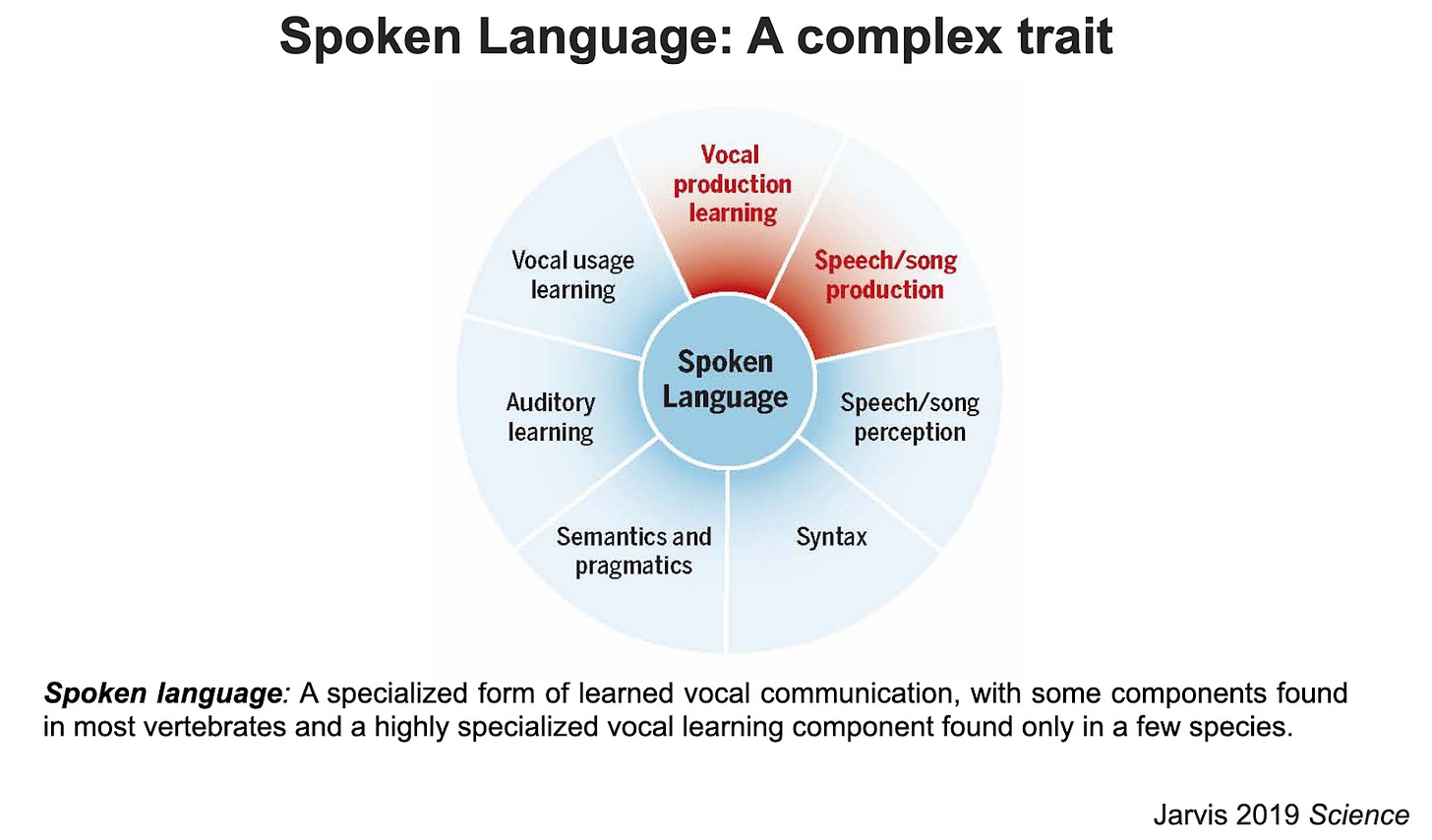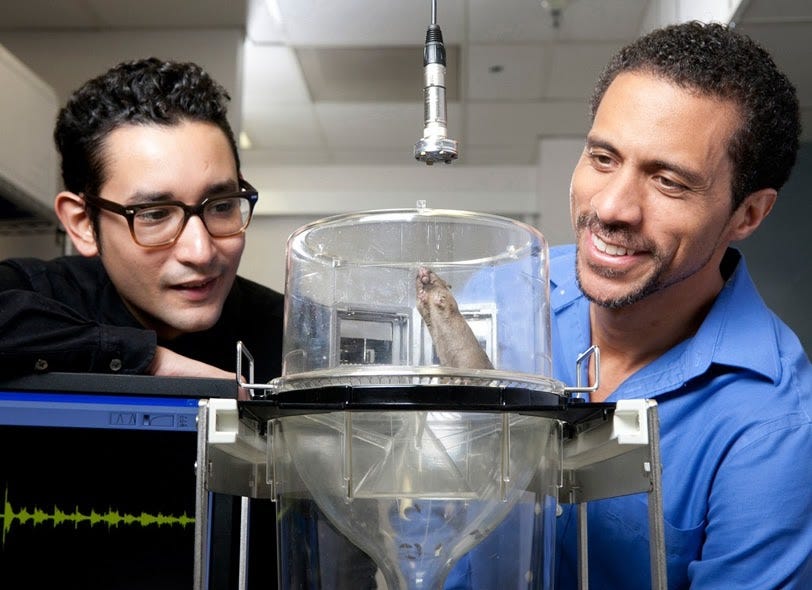SUMMARY
In this episode of Big Biology, Dr. Erich Jarvis talks with Marty about the evolution of vocal learning among mammals and birds, and the specialized neural networks that make it possible
Auditory learning can develop in multiple ways, including imitation and vocal usage learning.
Parrots have both a “core” and “shell” neural network for vocal learning, which Jarvis believes grants them superior vocal learning skills beyond the songbirds.
The neural networks human sign language and singing are intertwined with the networks involved with human speech.
Of the primates, humans are the only species to successfully evolve vocal learning.
RESOURCES
Here are links to a few of the resources we talked about on the episode or used to prepare for the interview:
PAPERS:
The evolution of vocal learning and spoken language (Science, 2019)
In this special selection, Jarvis presents a modern, evolution-based synthesis of non-human vocal learning studies, from behavioral to molecular levels of analyses., and what they may inform us about human spoken language.
Core and Shell Song Systems Unique to the Parrot Brain (PLOS ONE, 2015)
Jarvis et al. describe the vocal learning networks in the parrot brain, which uniquely contains a song system within a song system, possibly allowing for their increased vocal complexity among birds. The parrot “core” song system is similar to the song systems of songbirds and hummingbirds, whereas the “shell” song system is unique to parrots.
IMAGES:
MEET THE GUEST
Name: Erich Jarvis
Institution: Rockefeller University
Area of Expertise: Neurobiology of vocal communication
Follow Erich on Twitter: @erichjarvis
NOTEBALE QUOTEABLES
“What’s perplexing, is that out of the eight vocal learning lineages, in seven of them they have multiple species that learn how to imitate sounds. Multiple songbirds, multiple bats, multiple parrots, multiple cetaceans...but among the primates there is only one--us humans.”
“I encourage other scientists out there listening to us, that while your short term goals might be too ambitious, don’t give them up, because you might achieve it in 10 to 20 years. And if you don’t achieve it in your own lifetime, at least you’ve taken the steps so that the next generation after you can take off from where you left off.”
EXTRAS
 Meet Dr. Erich D. Jarvis, a professor at The Rockefeller University, who studies neural & genetic mechanisms of spoken language using song-learning birds & other animals. @erichjarvis #blackhistorymonth #blackscientist #science #blackexcellence #therockefelleruniversity
Meet Dr. Erich D. Jarvis, a professor at The Rockefeller University, who studies neural & genetic mechanisms of spoken language using song-learning birds & other animals. @erichjarvis #blackhistorymonth #blackscientist #science #blackexcellence #therockefelleruniversity

Jarvis discusses vocal evolution for Darwin Day on the Talk of Iowa broadcast
Quanta Magazine: Erich Jarvis on Theories About the Origin of Vocal Learning
CONTACT US
Got something to tell us? Send us an email at info@bigbiology.org. You can also reach out onTwitter,Facebook andInstagram.
Listen to the full episode on iTunes or Spotify. You can also find the episode on Big Biology’s website.









